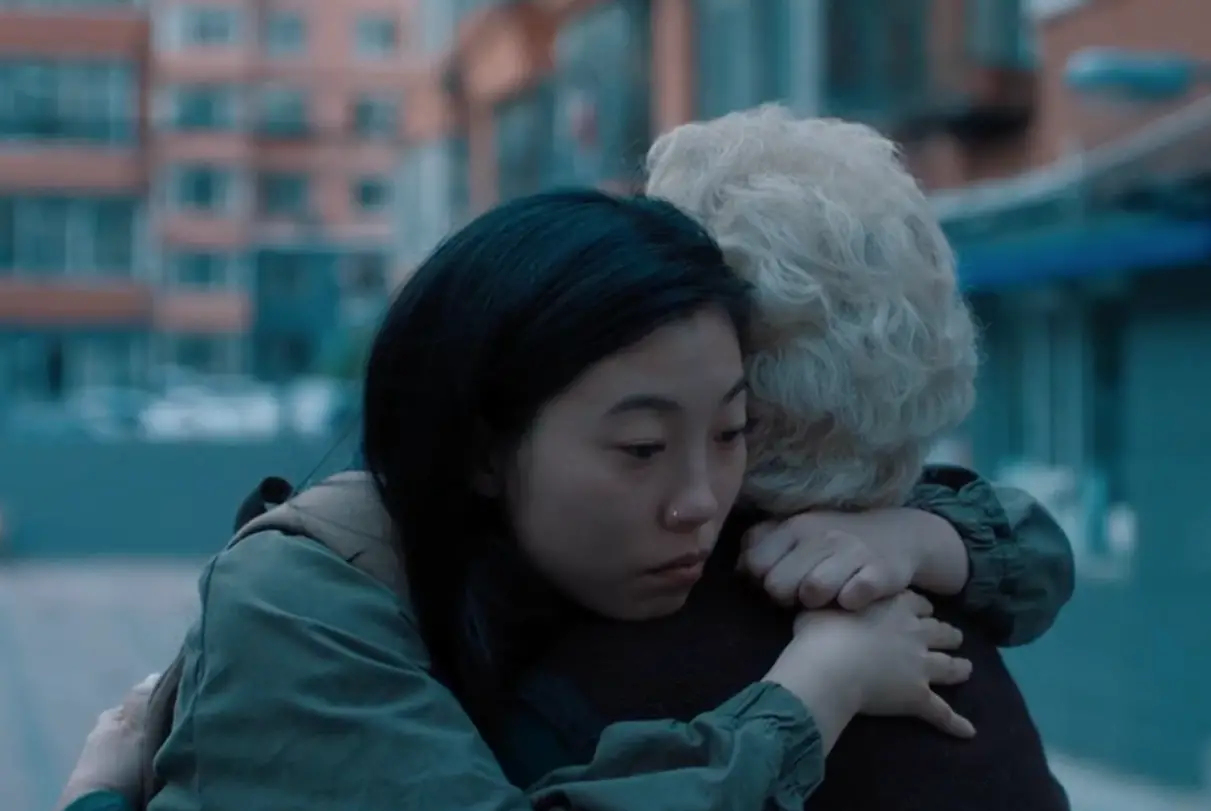“Chinese people have a saying: When they get cancer, they die.” While a humorous line the film, it still underscores a broader truth for Chinese people: One’s emotional health directly impacts one’s physical health. This is an ancient and popular Chinese belief and is the central conflict in the new Asian American indie film, “The Farewell,” directed and written by Lulu Wang.
“The Farewell” is a riveting story that explores the cultural differences between Asians and the Asian diaspora through the main character Billi, played by actress and rapper Awkwafina. Wang based the entire story of the film from her own family experience.
Wang based the entire story of the film from her own family experience, filtering her perspective through the protagonist, Billi. The story begins with Billi learning that her Nai Nai (grandmother in Chinese), who lives in China, is diagnosed with stage four lung cancer and only has a few months to live. Her parents deliver this grim news and instruct Billi to keep this a secret, especially from Nai Nai.
Billi and her entire family then travel to China to attend Nai Nai’s farewell, masked as a cousin’s wedding. As Billi reconnects with her family in China, she learns the true reason why this lie is important to her family and an essential belief within Chinese culture.
The film introduces itself as a story “based on a real lie.” Wang first premiered this story as a podcast episode back in 2016 on Chicago Public Media’s radio show “This American Life.”
Born in China but raised in America, Wang embodies the identity of many Asian Americans. Through the story, Billi expresses her frustration at not understanding this Chinese custom. She believes that this lie is immoral and Nai Nai deserves to know the truth about her health condition.
“The Farewell” illustrates the struggle to understand one’s ethnic traditions while raised in a completely different environment exceptionally well through Billi’s character development.
However, Billi’s identity crisis is just a side effect of a larger family issue. The main effect of the film is the reintroduction of Chinese traditions to its Asian American viewers. The film has revitalized the forgotten Chinese custom in mainstream media, allowing more Chinese Americans to learn and accept aspects of their ethnic beliefs.
By conveying the theme through Billi’s perspective, Wang is able to address the distant ties to their homeland that Asian Americans inevitably face growing up in the United States. Raised in a vastly different environment with a different set of morals, it is sometimes difficult for Asian Americans to understand their heritage’s culture and customs.
In a New York Times review of the movie, author A. O. Scott explains that this divide is in part because of the mentality behind individualistic cultures versus collectivistic cultures. “In America … the emphasis is on the individual,” he says, “whereas in China family and community always come first.”
Born in China but raised in the U.S., I think this concept couldn’t be truer. Just like Wang and Billi, at first I struggled to grasp why the characters, and I, should accept this elaborate lie. However, by watching the film, I was able to understand both sides of the argument in the end.
Growing up as a Chinese American, my parents taught me that family is the most important thing in the world. Therefore, everyone just expected that we would sacrifice and carry each other’s burdens.
However, I didn’t realize that everything I was taught growing up through Asian eyes was slowly altered by my American experience. Thus, I, just like Billi, couldn’t understand why her family kept Nai Nai’s cancer a secret.
To get a better understanding regarding the matter, I decided to talk to my own family about the deceit portrayed in the story. Unsurprisingly, my mother and aunt, both born and raised in China, all agreed with Wang’s family’s action and confirmed that this is something very common in China.
I was talking with my aunt (I call her “Gu Gu” in Chinese) one night about Wang’s story, and she revealed something about my own family history. Gu Gu emphasized that ancient Chinese custom illustrated in “The Farewell” is very clear and real to her because something similar happened to her own mother, my Nai Nai.
My Nai Nai was diagnosed with cancer in 1996 — leukemia to be specific. When the diagnosis came out, my family suddenly faced this similar dilemma: whether to reveal the truth of the result or not, especially to Nai Nai.
Ultimately, my family decided that it would be best to tell the truth. From there, Nai Nai was hospitalized right away and went straight into treatment. Three months later, the cancer got the best of her, and she passed away before I was born. She was only 62 years old.
For my family, they didn’t struggle with this decision as much as Wang’s family did. They knew they had to take a chance on my Nai Nai. By not telling her that she had cancer, to them, it was like giving up on her. They wanted to take the risk and go against the Chinese belief, risking her emotional wellness for the physical treatment.
Before talking to my family about Wang’s story, I never knew that this part of my family history existed, and I would have never learned about it unless Wang shared her own. It goes to show why it is important to have a diverse representation in the film industry — for young Asian Americans, like me, to learn about our heritage through our unique perspectives.
The Asian diaspora is a distinctive and particular narrative. For many of us, we grew up with two sets of rules: one for home and one for assimilating in the outside world.
“The Farewell” is able to capture this binary of opposing cultures and cultivate the controversial Chinese customs in a way that I can fully understand and accept. Wang showed me a side of my family history and my heritage that I otherwise would have missed out on.
It brought me closer to my Chinese identity, and, for that, I am truly thankful.
















